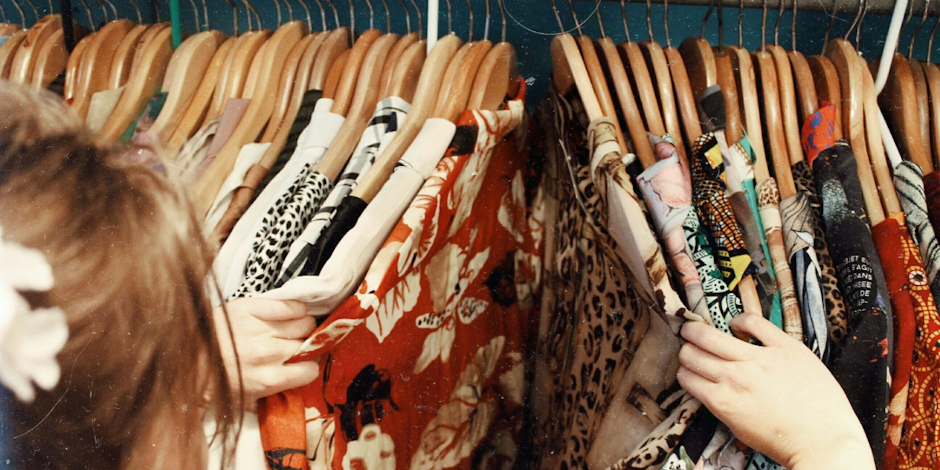7 ways digital advertisers are helping the industry reach net zero by 2030
As an industry, we have a collective goal to hit net zero by 2030 - a big aim that requires action on a number of fronts

So what are businesses in the digital ad industry doing internally to bring us closer to net zero? We’ve asked members of IAB UK’s Sustainability Group to share some of the initiatives or insight that they are most proud of to help spark your inspiration. Take a look at the IAB’s Sustainability Hub for more resources, case studies and ideas that you can implement.
1. Setting up a swap shop
Eleonora Sceusi (strategist, OMD UK): "Along with 30+ colleagues, we created Omnicom’s first ‘Pre-Loved Swap Shop’, a fashion pop-up shop that saw clothing donations from 100 people across OMG agencies being swapped for a monetary donation. I am so proud of the team that made this happen: 300 items were swapped, with the rest sent to the Care4Calais charity, and £900 was raised for the earthquake appeal. It’s inspired me to shop in charity shops across London, and I’m already excited for our next one: the Pre-Loved Children Clothing Swap Shop."
2. Switching to renewable energy
Emma Newman (CRO EMEA, PubMatic): "We’ve transitioned our global data centers to run on 100% renewable electricity and optimized our infrastructure to avoid processing traffic that doesn’t transact. We’ve also partnered with advertisers and agencies to build carbon efficient auction packages - leveraging freely accessible data such ads.txt listings and spend per QPS - enabling buyers to reach their audiences in a way that reduces the environmental impact of their ad campaigns."
3. Challenging purchasing habits
Hannah Rouch (chief marketing officer, Gumtree): "To successfully tackle climate change, the UK must embrace a circular economy. However, our research shows the number of 18-34 year-olds buying second-hand has dropped significantly in 2023. Low costs and fast deliveries are being prioritized over environmental concerns.
"Yet this group has the most opportunity to think second-hand first; those under 35 are 61% more likely to experience a life event, moving home, getting married or starting a family. To protect our future, we must challenge the group’s purchasing habits and question why buying new has become the default."
4. Reducing asset wastage
Emma Giles (digital video business development, Extreme Reach): "An average 48% of assets are classed as wastage, with one marketer wasting 90%, according to our ‘Asset Utilization & Wastage’ tool checks. This means assets were created, produced, uploaded and saved, but never trafficked to any destinations - either via linear or digital means. This client used the data we shared to cut their productions in half, which has had an obvious positive impact on reducing energy waste, carbon footprint and travel (for the commercial shoot) - all while improving ROI and saving money."
5. Prioritizing internal change
Vanessa O’Connell (head of marketing, Nano Interactive): "Earlier this year, we assessed our carbon emissions across Scope 1, 2 and 3 with ZeroBees. We analyzed everything from day-to-day office operations and travel through to services and ad-related emissions, to better assess where our carbon hotspots were and where savings can be made.
"On a wider level, many of us are still measuring footprints and working out how we can make the best possible impact. With so much at stake, we should be prioritizing internal changes over PR headlines - a ‘set and forget’ approach might not answer all our problems."
6. Being a sustainability champion
Araceli Almada (global sustainability manager, ShowHeroes Group): "I started raising awareness within my company; creating sustainability guidelines and preparing workshops for different teams and clients, including a podcast. I’m now global sustainability manager and the company acknowledges the importance of embedding ESG criteria in its global strategy - embracing the role it plays in decarbonizing the digital advertising industry. I’m actively setting goals for us to become net zero before 2030 and I act as an advisor for all stakeholders to achieve that ambitious aim."
7. Demystifying digital emissions
Marcela Oguntoye (commercial operations director, SeenThis): "Up until recently, climate action has been discussed in the context of obvious spaces such as transport, production and material sourcing. We now know that the internet too is a polluter and clients need tangible ways to address this problem.
"The extent to which clients can address climate action in this area directly corresponds with their ability to understand the internet supply chain and its associated emissions, as well as measuring and solution minimizing related CO2 emissions. Demystifying the complex nature of content and advertising delivery and providing simple steps towards transparency and minimizing internet related CO2 emissions is key. I’m proud of the work we’re doing in this area."

